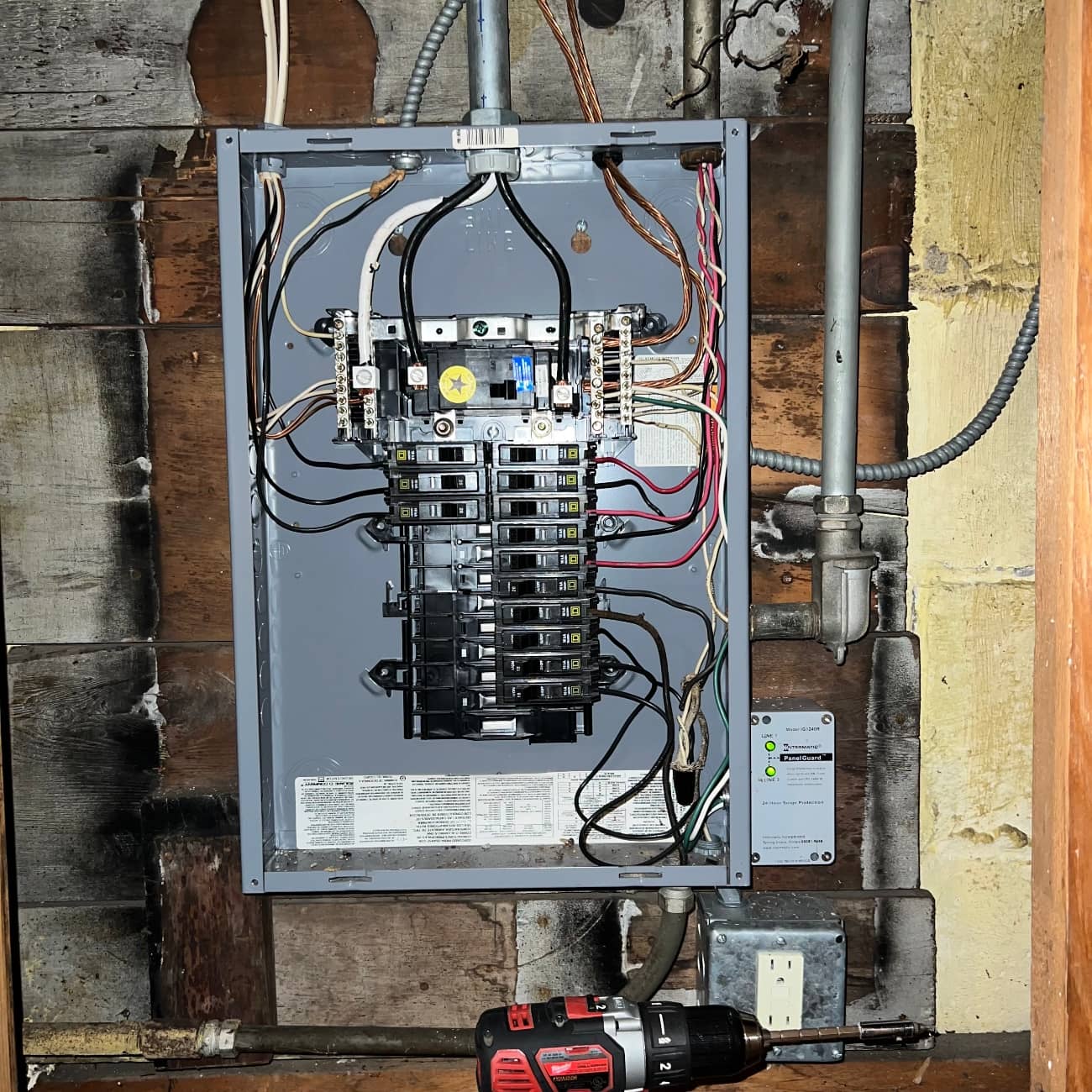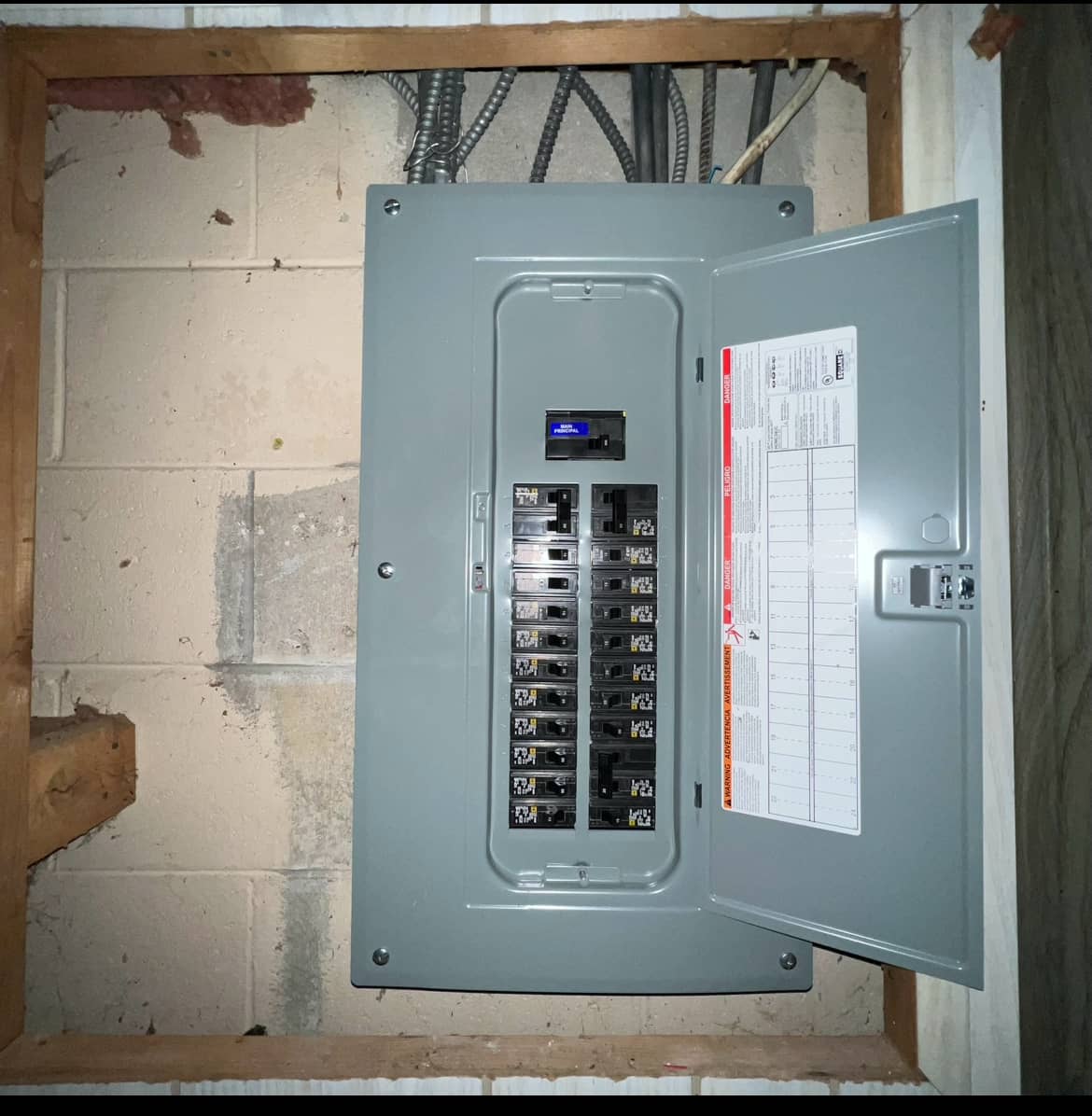The electrical panel in your home or business is the heart of your electrical system, managing the flow of electricity throughout your space. The unit, also referred to as a circuit panel or breaker box, distributes the power your residence receives and directs it smoothly through individual circuits to appliances, lights, devices, outlets, and machinery.
The electrical panel contains a main breaker with security mechanisms that shut the power off in the case of an overload or malfunction. Older systems may no longer function as effectively as they once did and may not meet the current needs of modern appliances.
If you haven’t changed the unit since you first moved into your home or added or plan to install new power-consuming appliances, it might be time for an electrical panel upgrade. There may also be warning signs like constant tripping, dimming lights, and unusual noises or smells that can indicate it’s time to make a change. An electrical panel can last 20 to 30 years, but eventually, even the best panel will need to be upgraded.
Pros and Cons of Upgrading An Electrical Panel
Increased Safety
One of the primary reasons homeowner should upgrade their electrical panel is for increased safety, as older electrical panels are prone to malfunctions. Along with the inconvenience of electrical glitches, possible shocks, and electrical fires can cause serious harm to your family and property. Upgrading to a new electric panel can bring you peace of mind.
Improved Power Strength
Most older panels have an amperage strength between 60 and 100. Your current panel may not have enough power, as most homes today require between 100 and 200 amps to support modern appliance usage. If you upgrade your electrical panel to one with more amperage, you can account for current and future usage requirements.
Avoid Overloads
If you’re making home improvements that might make use of new appliances, such as dishwashers or hot tubs, a panel update is necessary to avoid potential overloads. Even if you don’t plan to increase the electrical usage, modern units are more reliable and decrease the chance of power outages and disruptions. Plus, you also have the benefit of improved energy efficiency. New panels also come equipped with additional circuits and outlets. A great time to make an upgrade is when you’re making other home renovations. Even if you don’t plan to sell your home, replacing this critical component can add value for an appraisal or a future sale.
Obtain Insurance and Local Codes Compliance
It’s also a good idea to have your breaker box evaluated at regular intervals to ensure it’s compliant with insurance guidelines and local codes. If you don’t keep up with regulatory changes, it can lead to insurance issues.
Cost To Upgrade
One of the expected downsides of updating the panel is the cost to upgrade. A brand new service panel can have costs in the low thousands, as you’ll need to account for installation from a licensed electrician. Luckily, they can help you apply for any compulsory permits and ensure everything works as expected and complies with local regulations.
Power Disruptions
Most panel upgrades can take up to a working day, so you’ll also be out of power for that time duration. Be sure to ask your professional electrician to help select the best panel for your needs.

Signs You Should Upgrade Your Electrical Panel
1. 30+ Years Since Last Replacement
Time alone is a sign that it’s time for an upgrade. If you moved into your home more than 30 years ago and are still using the original fuse box, it is likely to have sustained a lot of wear and tear. While older units were well-made, they were not designed for modern use and are less energy-efficient.
2. Strange Smells & Noises
Anytime you notice sparks and burning smells, you’ll know that your box has deteriorated, and it’s time to ensure your safety by investing in a new one. The same principle applies if you hear buzzing sounds, crackling, or strange humming coming from the outlets.
3. Corrosion
You might also find rust or corrosion on the equipment, or notice that it overheats and trips often. When this happens, contact a local electrical contractor to assess your system.
4. Dimming Lights
Whenever you note your lights regularly dimming when you turn on appliances, this is a sure sign that the circuits are overloaded. You’ll need increased amperage to cover your electrical needs. If you’re investing in energy-efficient solar panels for your home or adding EV chargers or installing a hot tub, have your electrical panel checked out. You’ll likely need an upgrade to a panel of 100 to 200 amps to cover additional usage.
A responsible homeowner should take notice of the warning signs and upgrade their electrical panels without delay. You'll rest more easily knowing that you have taken the necessary steps to keep your home safer from electrical hazards. S4 Electric LLC specializes in electrical panel upgrades, so be sure to reach out for more information.

